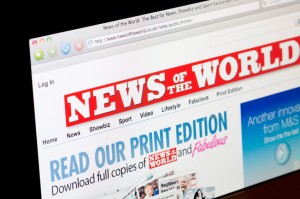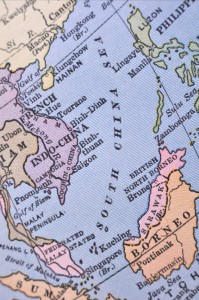[Editorial Note: It is with pleasure that this humble blogger introduces a new blogger to the Rising BRICSAM site. Evelyn Chan was a former student of mine at the Munk School and a research assistant. I have persuaded Evelyn to periodically write about her experiences as a student in China – “From the Bottom Up”]
Most people envision an epic battle scene in a bamboo forest with a sword-wielding Chow Yan Fat when they hear Crouching Tiger, Hidden Dragon. Very few know that the name originates from the former Chinese capital –Nanjing. Situated in the prosperous Jiangsu province, a part of the eastern region where the Yangtze River flows, Nanjing has always held an important place in China’s nation-building narrative. Serving as the capital under ten different dynasties and under the Kuomintang, and the site of the worst atrocities of Japan’s wartime occupation of China, the city noticeably straddles between its rich history and its rapid development. Its historic Wu Tong trees line city streets, which are marked by condo developments and shopping centres.
I found myself in Nanjing, having been placed by the China Scholarship Council at Nanjing University, one of the most prestigious universities in China, ranking among the top five nationwide, and the alma mater of former President Jiang Zemin. Perhaps stemming from a calculated policy of “soft power”, many foreign students have been been endowed with generous scholarships by either the Chinese Ministry of Education or by the many Confucius Institutes worldwide. Could mastering Mandarin really create a generation of foreigners sympathetic to China’s rise? Seems unlikely.
My time in China allowed me to be part of living history and observe a rapidly pluralizing country. Rather than battling an institution that towed the party line or a disengaged public, I was taken aback by the candidness and pragmatism of many of the Chinese I met. Too often in the news, the power of the Communist Party of China (CPC) is given so much credence, that the astuteness, scepticism and diversity in opinions of the Chinese population goes unrecognized.
For me this blog series is not to offer a prediction of how China will look like in 25 years, not even the apparatchiks in Beijing can you tell that. Rather, I’d like to share a range of encounters that has informed my understanding of Chinese society and may give you, the blog reader of Rising BRICSAM, a bit better sense of the evolving China – “from the bottom up”.
The most lasting impression I take away from my days in China is how differently as a Chinese Canadian I was treated . Visibly looking Chinese did not give me an edge; rather it proved to be more of a liability. Differential treatment on the basis of skin colour is an unfortunate reality in China, even in such a big metropolitan city as Nanjing.
Chinese laborers arriving in Canada and the US near the turn of the century came mainly from Guangdong and Fujian. When Sun Yat Sen, the first leader of modern China, and a native of Guangdong, envisioned the new modern China, it included the return of overseas Chinese. Their education and experience abroad were crucial to the revolution and the rebuilding of post-dynastic China, so Sun Yat Sen thought. Sun held an ethnic notion of Chinese identity that went beyond the borders of the state. A pan-Chinese identity however does not exist today. For instance I could not tell people I was 中国人(zhong guo ren, Chinese). Native Chinese take that to mean I am a Chinese citizen. While in the West, being Chinese carries an ethnic connotation rather than a national one.
The identity of the Chinese Diaspora resides stronger in the South, while this is less true in the North. Even though the CPC today has sought to restore ties with overseas communities in an effort to increase remittance flows and investment, there is no rite of return for Overseas Chinese. While Sun claimed they were the Mother of the Revolution, they do not have a meaningful place in the national narrative of post-reform China. I was either met with disappointment by teachers and strangers for not knowing the language or not as a real foreigner by those who dote on exotic-looking expats.
Both my parents were born in Guangdong and spoke a distinct dialect that is audibly distinct from Mandarin. While I knew Cantonese, I like many CBCs and ABCs could not read or write or speak Mandarin. My Chinese face and my broken Mandarin accent, most likely created some dissonance among the locals I first interacted with. I was often responded with: “你是韩国人吗?” (Ni Shi Han Guo Ren Ma?, Are you Korean?). When I said no, they then asked, “你是日本人吗?” (Ni Shi Ri Ben Ren Ma?, Are you Japanese?). When I said no again, I got a puzzled look and silence. When I said I’m a 华裔(Hua Yi/Foreign-born Chinese), I got the “Oh, I get it!” expression and a good chuckle.
However when going out with a group of visibly foreign students, the Chinese automatically designated me the 翻译 (fan yi, translator). This often led to taxi drivers and waitresses yelling at me for my incompetent translating skills. When travelling to 庐山, Chinese teenagers asked to take photos with my Caucasian friends, while I watched on the side. They appeared to be the dollar-wielding, exotic foreigners, and I the hired help. Many of my classmates, given their appearance have had the opportunity to host TV game shows or model for obscure Chinese clothing brands and car expos, earning about 1000 renminbi for a shoot.
I on the other hand could not for several months find a part time job teaching English. During my interviews, most of my potential employers bluntly said they were expecting someone with blonde hair. I was also told, it’s not about the teaching; it’s about the reputation of the school. While private centres willingly hire French, German or Czech expats, which will inevitably cause many Chinese students to develop interesting English accents, none would so willingly hire a foreign-born Chinese. Private centres, especially ones teaching young children are reluctant to hire overseas Chinese. They increase their cachet as a school that offers foreign teachers. One look at me, and parents would complain that the school hired a native and that they were cheated out of their money. Looking to avoid a fight with overprotective parents, most employers just don’t bother.
This is not say that racism is widely prevalent or that no one could guess I was foreign-born – it happened once while climbing the Tiger Leaping Gorge in Yunnan. Currently, the discussion about race is limited to Han and Minzu (minority nation) identities, ie Tibetan, Uyghur. While globalization has created hyphenated identities and multicultural communities in other countries, it has yet to reach China, despite its integration into the global economy. This will likely change in the future. While we are certainly seeing the rise of China in economic terms, the social effect of China’s development is still playing out, especially in terms of race and identity.
This is also not to say that I couldn’t use my identity to my advantage. An American friend who is completing his Master’s degree in Classical Chinese literature complained that he could never be accepted as Chinese despite his fluency and knowledge of Chinese history and culture. He noted that it’s difficult for Chinese people to overlook his identity and to engage in more deeper discussions. He claims there is a level of trust that my sameness in appearance can create, allowing for a more frank conversation. It probably took a decade for 大山 - Da Shan,the Ottawa-born and only white personality on CCTV, to be seen as one of China’s own. If I keep my sentences short, people right away think I am Chinese.
By the end of my time in China, I handled my identity question with grace – I think. The yelling with taxi drivers ceased as my Mandarin improved and we would banter about my accent. As my friends’ Chinese improved, they defended me and angrily yelled back that I was not their translator. Perhaps the most touching moment was when my Chinese teacher, a lady in her 60s who worked in the coal mines during the Cultural Revolution, telephoned me to wish me a safe journey home. She poignantly said that as a foreign-born Chinese, I should continue to study Chinese politics and society. I had a responsibility to return home with better knowledge of the country. She never singled me out in class because I was a foreign-born Chinese, but in this private discussion, she recognized that I had a unique connection to China and to her.






